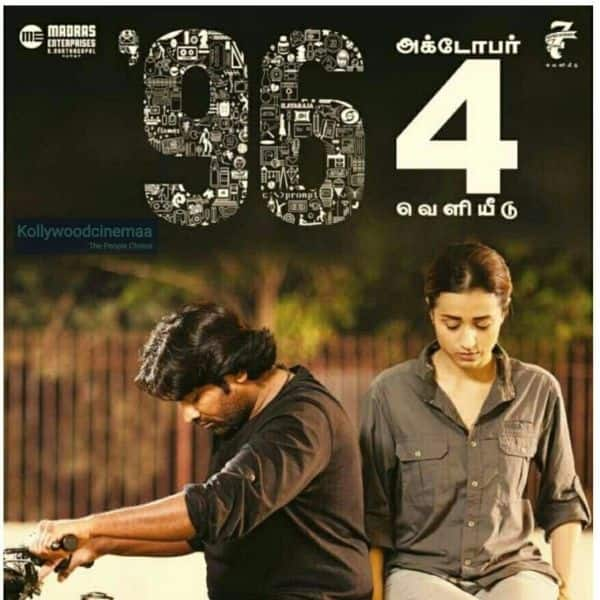Topics such as women embracing
their sensuality and talking about their physical needs are considered too bold
for mainstream cinema in India. Largely, such issues are not touched often or
made with the central theme in a movie because a lot of questions arise. Is a
woman who is aware of her sensual needs immoral? Is it only the vamps in the
movies that are lecherous and lusty? Does the society draft a moral code of
conduct for women and their physical needs? As a character says in the movie, can
women from ‘good families’ not satiate their desires without being judged?
National Award Winner S Manjunath AKA Mansore’s latest Kannada drama,
Nathicharami, propels its audiences to question the moral compass that the
society has set for its women. (Spoilers ahead)

A young widow, Gowri Mahesh (played by Sruthi
Hariharan), seeks psychiatric help to deal with her lonely life, three years
after her beloved husband’s death in an accident. Her life coach/psychiatrist (played
by Balaji Manohar), modelled around Shah Rukh Khan’s character from ‘Dear
Zindagi’, casually asks her about her sex life after her husband’s demise. She answers
that she is loyal to her husband and will remain so. As the camera pans to a
dog, a symbol of loyalty, her psychiatrist tells her that carnal desires are as
normal as hunger. It is just a bodily need. But in a society, such as ours, can
it be called just a need? The audiences are as conflicted as the brilliant Sruthi
Hariharan is on-screen. As she puts it in her own words, her heart still
belongs to her late husband for whom she brings in flowers every day, while her
body desires love. In the times of Tinder and speed-dating, she tries to have a
no-strings attached relationship, but, fails. For a woman who cannot stand a
temporary fix to a leaking tap, a temporary satiation of her desires will not
work either. This brings her back to her conflict – is she being immoral by
thinking of becoming emotionally infidel to her husband? Through the stunning
shots that linger on her without any dialogues, Sruthi conveys her angst, confusion
and pain superbly.

While there are no dearth of predators
and people showing unsolicited interest, she stays away from all of them. One
of the best scenes in the movie is when she calls out a colleague for behaving
inappropriately at workplace. She sets the tone straight – she may be longing
for a companion, but, she is not looking for a quick fix. Among all the
prying eyes, she finds a friend in a civil engineer she bumps into during her
morning walks, Suresh (played by Sanchari Vijay). Suresh, stuck in an unhappy
marriage, dislikes his wife since she is from a small town. Suresh acts as a
reflection of the society, that detests a woman voicing her urges, but the
rules do not apply to the men who seek to douse the same urges from their wives.
As a society, we have been conditioned to see women in a certain way, that
Suresh’s judgement of Gowri’s morality seems legitimate. One also tends to
question her motive behind being involved with a married man, by keeping his
wife in the dark. Does this make her evil and a home-wrecker? The name of the
movie seems to answer this - Dharmecha
Arthecha Kamecha Naathicharami. It is a Hindu wedding vow where the
couple promise to stand by their partner in Dharma, Artha and Kama. She keeps
her vow to her late husband by staying emotionally loyal to him. Suresh keeps
his vows by sobbing in his wife’s arms, conveying his acceptance of his
mistakes.
It is a slow, simmering and
unsettling movie, because of its uncomfortable topic. It is very difficult to
channel agony with ecstasy and Sruthi Hariharan delivers this in a spectacular
performance. Her remorseful eyes and pale face convey her anguish louder than the
happiness her vibrant clothes show. She succeeds in drawing the audiences
towards her emotional turmoil, despite being a character that is very difficult
to like, based on our morals and conditioning. Supporting her as a man cheating
on his wife, albeit guilt-laden, Sanchari Vijay is effective being the man who
has less control on his libido but sets boundaries for women. It is a poignant
and painful movie, with a lot of things left unsaid yet beautifully conveyed.
The captivating final shots of Gowri getting rid of her husband’s ash trays and cushions make us wonder if
she has decided to move on? Only to be proven wrong, when in the next scene, she
walks into her balcony, settles in a chair and lovingly moving her hand over the empty
chair next to her. She has kept her promise – Nathicharami!








